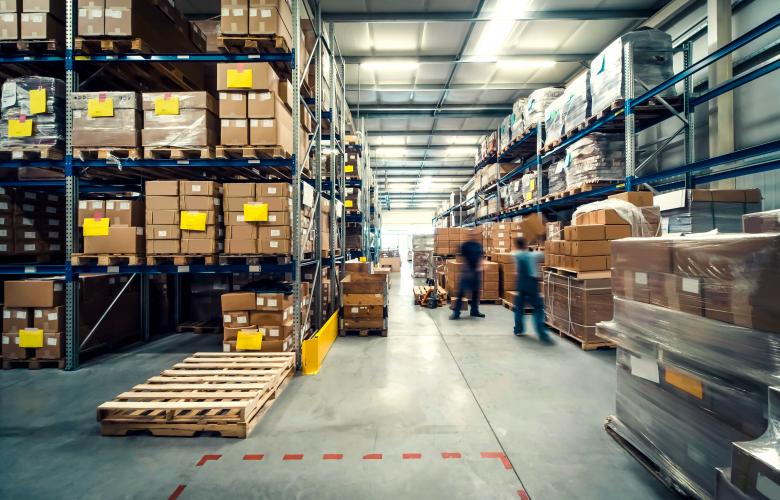Managing last mile logistics in Australia: The most important link of the supply chain - JLL
Contact
Managing last mile logistics in Australia: The most important link of the supply chain - JLL
New report from JLL says urban logistics is a key challenge for industrial occupiers, with increased focus on the last mile from businesses like Electrolux.
Unprecedented pressure on e-commerce retailers has amplified the integral nature of last mile logistics within the business supply chain.
Location of distribution hubs is an important consideration for retailers, with companies needing to be in close proximity of both customers and industrial assets. This is according to a new report from JLL – ‘Assessing Last Mile Logistics in Australia’.
In early 2021, JLL assisted global whitegoods manufacturer Electrolux with amplifying their logistics operations by relocating their Victorian distribution centre to the western suburbs of Melbourne.
The relocation of their Melbourne distribution centre was the first move in 20 years for Electrolux, as a result of having far outgrown their previous facility. Upsizing their footprint has improved operational efficiencies, whilst the new location has minimized the time between the distribution centre and the customer’s door.
Together with Electrolux, JLL implemented a robust strategy of optimisation, re-engineering their secondary freight network and instigating effective project management of their production warehouse. Relocating their last mile logistics hub has brought Electrolux closer to both their port and their customers. This has resulted in shortening the travelling distance by 5% for inbound materials, and 15% for outbound, translating to significant cost savings for the business.
Capacity, sustainability, and cost were the key fundamentals for the overhaul of the last mile logistics strategy for Electrolux, with their new centre maximising efficiencies all three areas. The sustainability, safety and performance credentials of the new facility are cutting edge in Australia.
JLL’s Head of Industrial & Logistics Agency - Australia, Peter Blade said, “This is just one example of how the reconfiguration of last mile logistics has provided a company substantial savings margins and enhanced their supply chain capabilities. In another instance, JLL facilitated the warehouse change for an online retailer that meant shrinking their footprint, ultimately drove efficiencies and profit as a result.
“We are seeing companies utilising different last mile strategies for different parts of their business, but success is dependent on having the right infrastructure in place. Retailers need to strike the right balance between cost, inventory and delivery speed to ensure growth and profitability. Fully investing in optimizing the last mile can make the operations of a busy and successful Australian business even better,” said Mr Blade.
The last mile model with the most uptake in Australia sees retailers occupying a network of distribution facilities under their own brand, while outsourcing the operation of some warehouses. This model allows businesses to control the cost and allows more flexibility from their 3PL partner.
JLL’s report notes there are few retailers undertaking last mile themselves, due to the large scale and cost of the process. The largest group operating in the pure last mile space nationally is Australia Post, alongside major operators in the food sector (supermarkets and meal kit delivery providers).
Conversely, smaller scale retailers are adopting a strategy of an outsourced 3PL that controls the fulfilment of all stock that the retailer chooses to place in the warehouse, providing the added advantage of flexibility.
JLL’s Senior Director - Head of Industrial (Research), Annabel McFarlane said, “We are increasingly seeing multiple companies of a smaller scale combine within a shared 3PL facility. This provides them with the flexibility to scale up or down, as well as the benefits that come from having access to a 3PL’s multi-client warehousing network.
“It is widely accepted that the pandemic propelled e-commerce forward exponentially, resulting in changes to traditional logistics structures. As the final step in the fulfilment process, the last mile for logistics is increasingly becoming the most important. Global studies have illustrated how vulnerable Australia’s supply chains are to macro shocks with delivery speeds to Australian consumers being more impacted than others when compared to global averages. We expect supply chain re-configuration activity to accelerate post pandemic as retailers focus on cost and delivery time efficiencies,” said Ms McFarlane.
JLL’s report, ‘Assessing Last Mile Logistics in Australia’, can be downloaded here.
To request further information with regards to the research mentioned in this article please contact either Annabel McFarlane or Peter Blade via the contact details below.
Similar to this:
JLL 3Q Research: Industrial rents grow at highest levels since 2004







